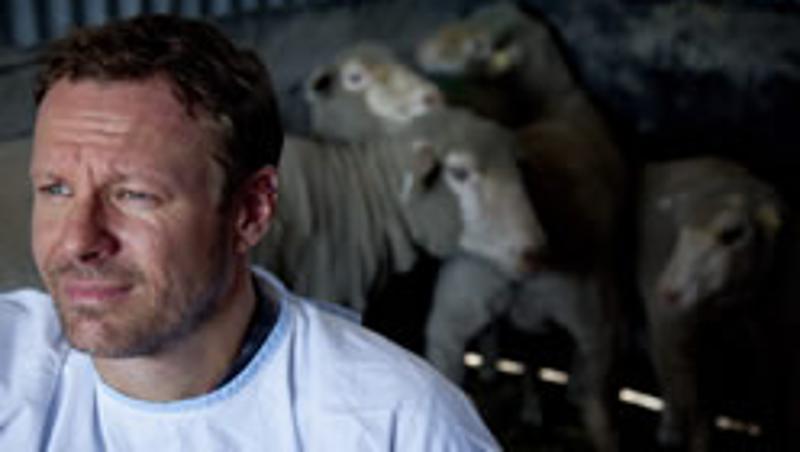
A QUT and CSIRO researcher aims to find out whether a lack of the appetite hormone ghrelin is responsible for lambs not seeking their first vital feed.
"Ghrelin and similar hormones are the signposts that let us know when we're hungry," said PhD student Edward Parker.
"We believe that if a lamb doesn't have appropriate levels of ghrelin at birth it simply isn't hungry and so doesn't take that first feed.
"The first feed from a ewe is filled with nutrients and other substances that are important for the lamb's survival," he said.
Mr Parker said finding out the degree to which higher levels of ghrelin could prevent lamb deaths was essential.
"Australia is one of the world's leading producers of lamb and mutton with the off-farm sheepmeat industry worth approximately $4.1 billion annually, while the wool industry earns Australia returns of approximately $2.7 billion each year," he said.
"Lamb survival is a significant problem for the industry so finding a way to prevent even a proportion of these deaths is important for productivity and the welfare of these animals."
Mr Parker said he aimed to take blood samples before and after lambs' first feeds to determine the levels of ghrelin present.
"We will then compare the early ghrelin levels in lambs that prospered to levels in their poor performing companions to determine if any differences exist," he said.
"If ghrelin is found to be lacking in lambs at birth we might be able to set up a plan for feeding pregnant ewes with nutritional supplements that would boost the ghrelin levels in new-born lambs.
"No-one has looked into this before so hopefully this research will provide the sheep industry with important information."
Mr Parker said lambs were usually born over night and early morning during winter/spring when grass was more plentiful and predators less so, but the downside was that temperatures out in the paddock were often freezing.
"A lamb will often put its energy into just trying to keep warm and if it doesn't have sufficient ghrelin it won't have the energy or the motivation to stand and search out its mother's udder in order to feed," he said.
Mr Parker is undertaking his PhD jointly with the Ghrelin Research group based at the Institute for Health and Biomedical Innovation (IHBI) at QUT and with CSIRO and expects his research to be completed within the next three years.
Media contact: Rose Trapnell, QUT media team leader, 07 3138 2361 or 0407 585 901 rose.trapnell@qut.edu.au


